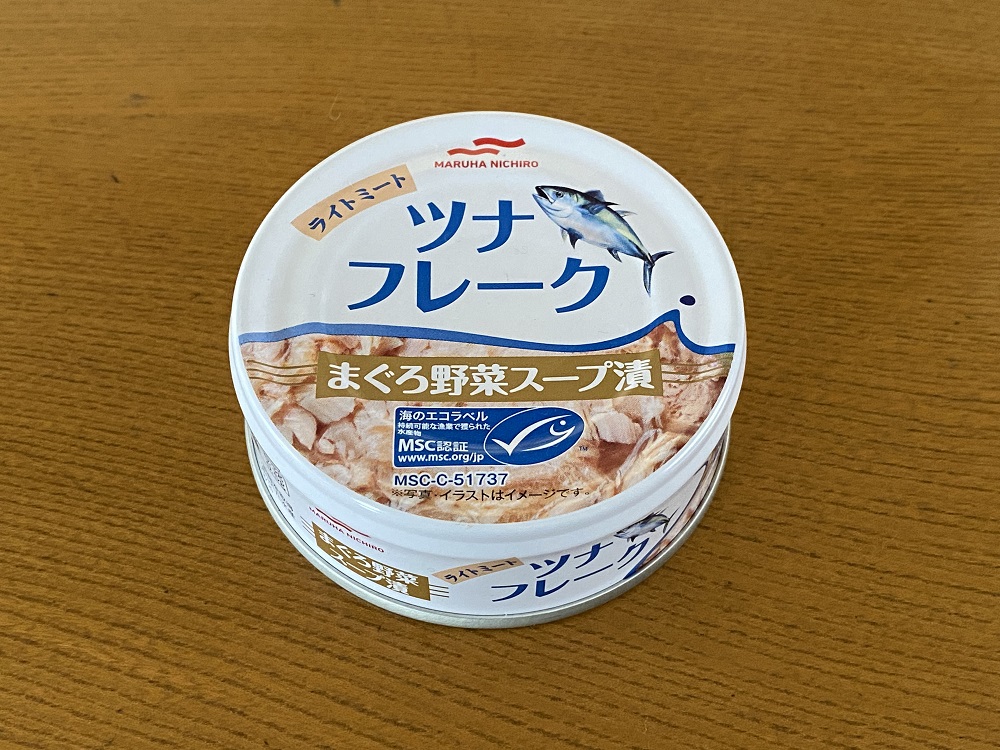Maruha Nichiro Corporation
|
We hold a interview with Maruha Nichiro Corporation about the protection of marine resources by e-mail. (Answer e-mail recived at November 4th, 2022) |
 A canned tuna commodity of Maruha Nichiro certified by MSC |
Q1. Why are your company take aggressivelly action to marine resources protection?
In order to practice sustainable management of our company with increasing corporate value, marine resource depletion would be the most serious risk to our business operations.
Q2. How many products do your company currently provide with MSC certification?
Maruha Nichiro Corporation
In 2019, we provieded about 40-50 kinds of MCS certified marin products, which total weight are about 820,000 tons. This corresponds to 59% of the total volume of natural marine products we provided in the same year (approximately 1.41 million tons).
In addtion, in 2021, we provided approximately 1.195 tons of frozen marin food products with MSC certification.
Q3. What is your company challenge to sustainablity of tuna?
Maruha Nichir became
Complete aquaculture is a method of cultivating (producing) fish without using natural resources. In complete aquaculture, eggs are collected and hatched from bluefin tuna raised on the farm, and the cycle of production and shipment is completed within the farm. Therefore, complete aquaculture is an important effort to realize a "sustainable fisheries industry”.
The challeges to develop the complete aquaculture of bluefin tuna said extreamly difficult before, but Maruha Nichiro tried to this challenge and won. In current, the technology have reached to commarcial level and shipped 570 ton of complete aquaculuted tuna in 2021.
We are now conducting novel technical development to improve the syteme for the future.
Q4. Which of your company's efforts were highly regarded and led to MSC certification?
We have
Since obtaining this certification in December 2006, we have continued to manage our products in accordance with the requirements of the certification standard and have expanded our handling of MSC certified products. We believe that this led to the commercialization of MSC-certified light tuna flakes.
Q5. What is difficult points for your company to do challenges to marine resources protection or MSC-certified products?
In order to evaluate effect of action to marine resource conservation, it is necessary to clearly identify the target fish and the target values. Our company conducted a stock assessment of the marine products we handle in 2019 and found that 18% of natural marine products had insufficient data to confirm stock levels. Although it is not easy to collect data to determine the exact amount of resources, we have set a goal of "100% survey rate of resources by 2030" and are
One of the problems of MSC certification is
Q6. What has been the consumer response to your company's efforts to protect marine resources and MSC certified products?
According to a survey of consumers conducted by the Marine Stewardship Council (MSC) between January and March 2020, awareness of the MSC Marine Ecolabel in Japan was 15%, down 4 percentage points from two years ago, but the percentage of those who understand that the MSC Marine Ecolabel is about ocean sustainability and certification increased from 28% to 36%. However, the percentage of those who understand that the MSC Marine Ecolabel is about ocean sustainability and certification increased from 28% to 36%,
Our company hold cooking classes for children and their parents and accept company visits from elementary, junior high, and high schools, and we always inform them about MSC and ASC certification. We are always sure to inform students about MSC and ASC certification at these events. We expect that SDGs will be included in the guidelines for elementary and junior high schools, and that environmentally conscious products will gradually become an option in the future.
Q7. What are your future prospects and challenges regarding sustainable products?
⑴ The Maruha Nichiro Group is
⑵ We have launched a challenge for land-based salmon farming together with other companies. The goal is to
⑶ With the aim of establishing a technology for culturing fish muscle cells, we are

|
Thank you for your cooperation. I think it is wonderful that Maruha Nichiro Corporation is actively involved in activities related to the protection of marine resources, such as sales of MSC certified products and complete aquaculture of tuna. |
Links
![]() Maruha Nichiro Corporation
Maruha Nichiro Corporation
https://www.maruha-nichiro.com/
![]() Home
© 2022-2023 マグロの学校/School-of-Tuna All rights reserved.
Home
© 2022-2023 マグロの学校/School-of-Tuna All rights reserved.